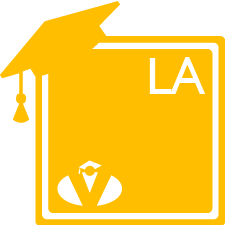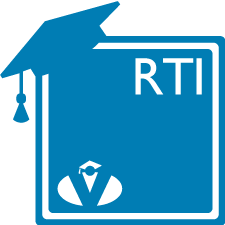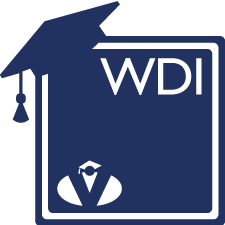|
Empty
Welcome
Visitor
Browse Courses
Sort by:
Default

Traditional models of classroom discipline and management are grounded on punitive consequences in top-down authoritarian systems. Teachers make rules and enforce them, often without any discussion with students. This results in disequilibrium in the classroom, some students receiving praise and tangible rewards while others suffer the consequences of noncompliance.
Most educators are familiar by this time with Gardner’s Theory of Multiple Intelligences, but the concept is limited to academics. Behavior management must be differentiated in the same way that instruction and learning experiences are differentiated. Academically, students have diverse learning styles and preferences that must be addressed if they are to reach their full potential. Why would we expect students to be any less diverse psychologically than they are academically? Some of our students have physiological or psychological disabilities that affect their behavior, such as ADHD, fetal alcohol syndrome, Asperger’s syndrome, autism, etc. Other students’ behaviors may be affected by environmental factors: divorce incarcerated parents foster care physical, sexual, or emotional abuse domestic violence drug or alcohol abuse poverty gang influence poor nutrition transience homelessness negligence etc. One set of rules, rewards, and consequences cannot possibly be expected to work with the diverse groups of students we have in our classrooms today. More  Dates:
60 Days to Complete
Dates:
60 Days to Complete
 Credits:
30 PD Credit
Credits:
30 PD Credit
 Location:
Location:

Designed to help the learner identify and effectively teach students affected by child abuse and/or neglect, this course covers how to recognize the signs of physical, emotional, and sexual abuse, and physical and emotional neglect in students. It also discusses the specific factors that exist in families who abuse or neglect their children. A major emphasis in this course is on helping the participant understand the special learning needs of abused or neglected children and how to meet those needs in the regular classroom. Working with parents and community agencies is also emphasized. Note: This course meets the child abuse and neglect educational requirement in most states. It is the responsibility of the student to verify the course content with his or her specific state professional licensing agency to ensure proper credit.
More  Dates:
60 Days to Complete
Dates:
60 Days to Complete
 Credits:
30 PD Credit
Credits:
30 PD Credit
 Location:
Location:

This course is designed to help special and general educators gain a better understanding of inclusion, one of the current educational reform movements that advocates educating students with disabilities in the general education classrooms. Upon course completion, the learner will be able to define key concepts and terms, identify and describe federal legislature and court cases, and list and describe the federal definition of students entitled to special services. This course will also discuss the roles and responsibilities of educators in providing special services to students educated in inclusive classrooms.
More  Dates:
60 Days to Complete
Dates:
60 Days to Complete
 Credits:
30 PD Credit
Credits:
30 PD Credit
 Location:
Location:

Language Acquisition for ESL Students was written to help teachers understand concepts and terms related to educating students whose first language is not English. This course discusses developmental theories and how they apply to English language learners. The focus of this course is on the process of second language acquisition and the role of the classroom teacher. Included in this course is information about the legal obligations of schools and teachers to provide services and about the types of programs schools might provide.  Dates:
60 Days to Complete
Dates:
60 Days to Complete
 Credits:
45 PD Credit
Credits:
45 PD Credit
 Location:
Location:

Methods & Materials for Teaching ESL Students was written to help teachers understand concepts and terms related to educating students whose first language is not English. This course discusses how to apply instructional methods in creating lessons how to create a motivating and caring learning environment how to integrate teaching reading, writing, speaking, and listening skills how to differentiate instruction for English language learners and how to identify culturally appropriate curriculum and instructional resources.
More
 Dates:
60 Days to Complete
Dates:
60 Days to Complete
 Credits:
45 PD Credit
Credits:
45 PD Credit
 Location:
Location:

RTI is a process schools can and should use to help students who are struggling with academics or behavior. Even though RTI is primarily linked to special education and the early identification of learning problems, RTI is not just for students in special education. RTI is for all students and is based on the premise that a student might be struggling due to instruction or the curriculum in the past, or in the current classroom. Every teacher will have students who are struggling and whether it’s short term or long term, RTI is a valuable tool.
More  Dates:
60 Days to Complete
Dates:
60 Days to Complete
 Credits:
45 PD Credit
Credits:
45 PD Credit
 Location:
Location:

This course will discuss why writing is important and why teachers should include writing as often as possible in all content areas. The course will also include practical applications for assessing and teaching writing, including teaching students how to self-assess their own writing. The first chapter of this course will discuss why teaching writing is important and give you an introduction to the Six Traits of Writing Model. Through chapters 2, 3, and 4 we will discuss the elements of the Six Traits of Writing Model. Throughout those elements we will look at practical ways to use this model in your classroom.
More  Dates:
60 Days to Complete
Dates:
60 Days to Complete
 Credits:
30 PD Credit
Credits:
30 PD Credit
 Location:
Location:

This course will explore an instructional methodology that incorporates strategies for teaching concepts, constructively, and contextually. The goal is for you to gain a deeper understanding of the underlying concepts of various math topics and explore the principles of teaching those concepts to learners. The course will also explore teaching methodologies that support many federal and state standards. This course will focus on the topics of integers, fractions, factoring, and functions.
More  Dates:
60 Days to Complete
Dates:
60 Days to Complete
 Credits:
45 PD Credit
Credits:
45 PD Credit
 Location:
Location:

This course, Understanding & Implementing Common Core Standards, has been divided into four chapters. The organization of the course covers the rationale for and design of the Common Core State Standards, the “Common Core Mindset” practitioners need for successful implementation, and what specific actions can be taken for deeper implementation across settings.
More  Dates:
60 Days to Complete
Dates:
60 Days to Complete
 Credits:
45 PD Credit
Credits:
45 PD Credit
 Location:
Location:

In this course you will learn what is meant by Differentiated Instruction (DI) and the common myths associated with creating the differentiated classroom. We will discuss the legal, theoretical, and pedagogical foundations in the field of education that support the utilization of differentiated instructional practices and principles. We will reflect on best practices and national trends in the design of the educational setting to meet the needs of a diverse learning population. Why DI?: An Introduction to Differentiated Instruction will also provide connections to a variety of concepts, variables, and resources that will assist practitioners in aligning their own professional practices with those found in the differentiated classroom. VESi courses are now tablet compatible, making it easy for you to recertify anytime, anywhere with reliable, stable online access.
More  Dates:
60 Days to Complete
Dates:
60 Days to Complete
 Credits:
45 PD Credit
Credits:
45 PD Credit
 Location:
Location:

This online course will help the learner achieve a better understanding of ADD and intervention strategies to facilitate positive student change. Taught by Mick R. Jackson MS/ED, this course covers the history of the disorder, accepted methods to assess and identify students with the disorder, and various methods, medications, and strategies that are currently used to treat it. For situations in which services beyond what can be provided in the classroom are required, the referral process for getting help for the student will be addressed. Reference materials include a list of resources for both teachers and parents who would like more help or information about ADD or ADHD. VESi courses are now tablet compatible, making it easy for you to recertify anytime, anywhere with reliable, stable online access.
More  Dates:
60 Days to complete
Dates:
60 Days to complete
 Credits:
30 PD Credit
Credits:
30 PD Credit
 Location:
Location:

Taught by Dr. Michael Sedler, the course provides an overview of violence and the motivational purposes behind aggression. The correlation and impact of the media, community, and family upon violence is investigated. The learner will gain an understanding of identification and intervention approaches to working with out-of-control behaviors. In addition, information about the national resources available for both parents and teachers is covered. Upon successful completion of this course, participants will have a better understanding of violence and the motivations behind its use, as well as specific strategies to minimize the occurrence of violence in the school and community. VESi courses are now tablet compatible, making it easy for you to recertify anytime, anywhere with reliable, stable online access.
More  Dates:
60 Days to complete
Dates:
60 Days to complete
 Credits:
30 PD Credit
Credits:
30 PD Credit
 Location:
Location:
|
 Canvas Login
Canvas Login

